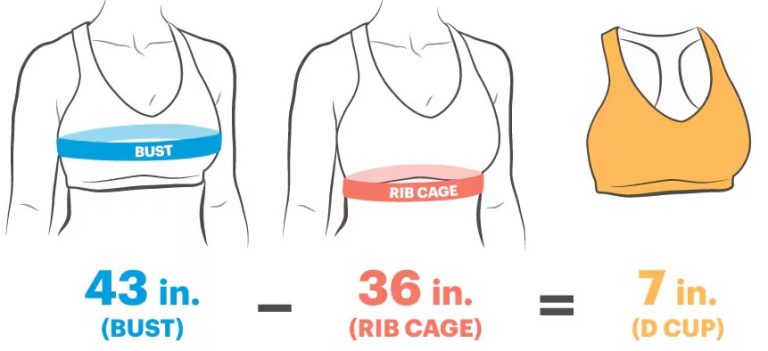Are You Supposed to Wash Clothes before Wearing Them : Essential Tips
Are You Supposed to Wash Clothes before Wearing Them? Yes, you should wash clothes before wearing them. This removes chemicals and potential allergens.
New clothes often contain chemicals from manufacturing processes. Washing them eliminates irritants that can cause skin reactions. Fabrics also accumulate dust, dirt, and germs during shipping and handling. A quick wash ensures your clothes are clean and safe to wear.
Freshly laundered garments feel softer and more comfortable. This simple step can enhance your overall wearing experience. Always check care labels for washing instructions to maintain fabric quality. Protect your skin and prolong the lifespan of your clothing with this easy habit. Embrace the practice of washing new clothes for a healthier, more enjoyable wardrobe.
Introduction To Washing New Clothes
Washing new clothes is very important. New clothes often have chemicals on them. These chemicals can irritate your skin. Washing helps remove dirt and germs. This makes your clothes safer to wear. Clean clothes also smell better. They feel softer on your skin. So, always wash new clothes before wearing them.
New clothes may have formaldehyde. This keeps clothes wrinkle-free. Dyes are used to color clothes. These can cause allergies. Pesticides keep bugs away from fabrics. These chemicals can harm your skin. Washing helps remove these harmful chemicals. Make sure to use a mild detergent.
Health Benefits
New clothes often have chemicals. These chemicals can cause skin irritation. Washing clothes before wearing them removes these chemicals. Clean clothes are soft and comfortable. They are less likely to irritate your skin. Children and people with sensitive skin benefit the most.
Many people have allergies. New clothes can have allergens. Washing removes dust and allergens. Clean clothes help reduce allergic reactions. It’s important to wash clothes for babies. Their skin is very sensitive. Clean clothes keep them safe from allergies.
Environmental Impact
New clothes often have chemical residue. These chemicals can irritate the skin. They may also cause allergic reactions. Washing clothes before wearing them can remove these chemicals. This makes the clothes safer to wear. Always check labels for washing instructions. This helps protect both you and the environment.
Washing new clothes can reduce water contamination. Chemicals from fabrics can end up in water systems. This can harm fish and plants. Using eco-friendly detergents also helps. This keeps our water clean. Always wash clothes in full loads to save water. This small step can make a big difference.
Fabric Considerations
Delicate fabrics like silk and lace need extra care. Washing them before wearing is important. These fabrics can have chemicals from the factory. Washing removes these harmful substances. Gentle hand washing is best for these materials. Avoid using harsh detergents. Always use cold water for delicate fabrics. This keeps them safe and fresh.
New clothes can sometimes bleed color. This is common with dark and bright colors. Washing these clothes before wearing helps. It prevents color transfer to your skin. It also protects other clothes from stains. Always wash similar colors together. Use cold water to prevent color fading. Checking care labels is important. This ensures you follow proper washing instructions.
Proper Washing Techniques
Always choose a mild detergent for your clothes. Avoid using harsh chemicals. These can damage the fabric. Liquid detergents are often better. They dissolve easily in water. Powdered detergents can leave residue on clothes. Check the labels on your clothes. Some might need special detergents.
Use cold water for delicate clothes. This helps to prevent shrinking. Warm water is good for removing stains. Hot water can be used for white clothes. It helps to kill germs. Always read the care labels. They give the best advice on water temperature. Mixing different temperatures can harm clothes.
Drying And Storing Tips
Washing new clothes removes chemicals and potential allergens. Dry thoroughly before storing to prevent mold and mildew. Always check care labels for specific drying instructions.
Air Drying Vs. Machine Drying
Air drying clothes is gentle on fabrics. It helps clothes last longer. Hanging clothes outside saves energy. Machine drying is faster. But it can cause wear and tear. Clothes can shrink in the dryer. Using a low heat setting can help. Both methods have their benefits. Choose based on your needs and fabric type.
Read More
Can Clothes Cause Yeast Infection? : Unveiling the Truth
Preventing Mold And Mildew
Mold and mildew can grow on damp clothes. Always dry clothes completely. Store clothes in a dry place. Avoid piling damp clothes together. Use breathable storage containers. Silica gel packets can absorb moisture. Regularly check stored clothes for any signs of mold. Keeping clothes dry is key to avoiding mildew.
Special Cases
New clothes often contain chemicals and dyes that can irritate the skin. Washing them first removes these substances, ensuring comfort and safety.
Secondhand Clothes
Secondhand clothes might have germs and dirt. Washing them removes these harmful elements. It also removes any odors from previous owners. Washing secondhand clothes ensures they are clean and fresh. Always wash them before you wear them.
Clothes For Babies And Toddlers
Babies have sensitive skin. New clothes might have chemicals from the factory. Washing removes these chemicals. It also makes the clothes softer. Clean clothes protect babies from rashes. Always wash new clothes for babies and toddlers.
Conclusion
Washing clothes before wearing them can protect your skin and ensure hygiene. Chemicals and residues can irritate sensitive skin. Freshly washed clothes feel more comfortable and safe. Next time you buy new clothes, take a moment to wash them first.
Your skin will thank you.







